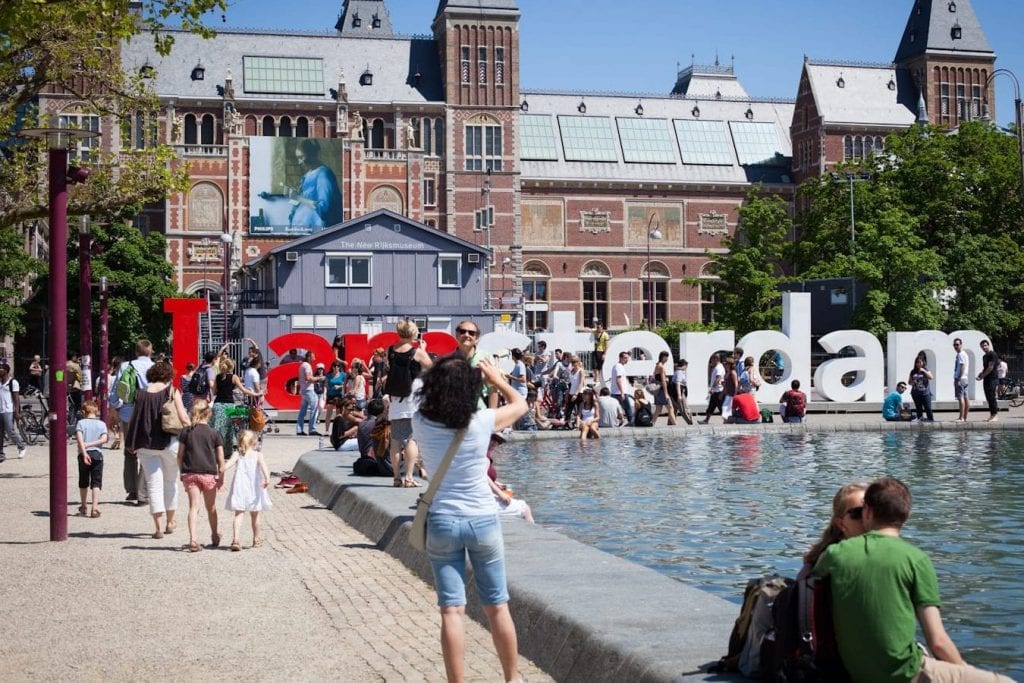Skift Take
Europe is so popular as a tourist destination that it doesn't really need any help growing numbers. A move to concentrate on value is a sensible approach and one that will hopefully see the benefits spread to lesser-known destinations.
The European Travel Commission (ETC), the organization responsible for promoting the continent as a tourist destination, is changing its marketing strategy for 2019, moving from a volume to a value-based approach.
The change will see a shift from a market segmentation based predominantly on demographics to one based on behaviors, interests, and attitudes. The ETC will no longer organize its promotional activity around where its target audiences live.
The move comes as more European cities are beginning to address overtourism and putting in place plans to disperse crowds more broadly to help improve the quality of life of residents who live in those cities. The ETC is also putting a big emphasis on experiences over specific destinations.
“By doing what we have been doing so far we…found out that Europe was perceived as a diverse destination but it was very generic as far as the brand appeal was concerned,” said Elke Dens, chairman of the marketing group at the ETC.
“So, we attracted a lot of first-time visitors to Europe and they usually wanted to see the most famous attractions…the typical Amsterdam, Venice, Barcelona.”
Although Dens stressed that none of its members had made demands about cutting visitor numbers, she did acknowledge the impact tourism can have on certain destinations.
“We wanted to attract more people, so they want to see the bucket list item destinations, which of course already have a lot of visitors and therefore we were actually maybe contributing to the overcrowding of these popular places in Europe.”
Continent Not Country
Another interesting change worth picking up on is the ETC’s decision to move away from talking specifically about places.
“Now, instead of presenting Europe as a sum of destinations, the new brand Europe will promote the continent as a sum of passionate experiences in multiple destinations around the continent,” the ETC said in its strategy summary.
The organization includes members from 32 national tourism organizations and it is responsible for marketing Europe, to the rest of the world. The UK is not on the list — somewhat appropriate given Brexit — and neither is France. Although it is not part of the European Union, the ETC receives funding from it, alongside membership fees.
By moving away from traditionally destination marketing, is Dens not worried that some of the specific qualities of certain destinations will get diluted?
“We don’t want to lose the diversity because also this is what makes Europe special. We will emphasize the diversity but we can do it via unity we think, because there are values that unite Europe,” she said.
International tourists visiting Europe also benefit from the fact that the EU has abolished most of the internal border checks between countries, meaning people can travel very freely. A continent-wide strategy makes sense.
“An international traveler does not stop at the border of a country, [often] we see that international travelers do multiple countries, and that’s why we will actually look more at products and travel experiences that come first rather than destinations that come first,” Dens said.
A Reaction to Overtourism?
The ETC’s decision to change its marketing approach mirrors that of destinations within Europe, which are trying to better manage their tourism industry. Amsterdam has moved from overtly marketing the city, to trying to manage it instead.
Tour operators are also pushing off-season deals in order to try and spread tourism out across the year.
“The vast majority of destinations are suffering from seasonality and honeypot problems that can be addressed through planning, marketing and destination coordination,” Professor Dimitrios Buhalis, head of the department of tourism and hospitality at Bournemouth University told Skift via email.
“Strategic planning, management and marketing should be able to address those issues and technological solutions should offer real time tourism management dynamically at destination.”
The ETC will begin rolling out its new marketing strategy in mid-2019 after the end of a China-focused campaign.
The Daily Newsletter
Our daily coverage of the global travel industry. Written by editors and analysts from across Skift’s brands.
Have a confidential tip for Skift? Get in touch
Tags: amsterdam, barcelona, overtourism, venice
Photo credit: Amsterdam. The Dutch city is one of a number of European destinations dealing with overtourism. _dchris / Flickr
